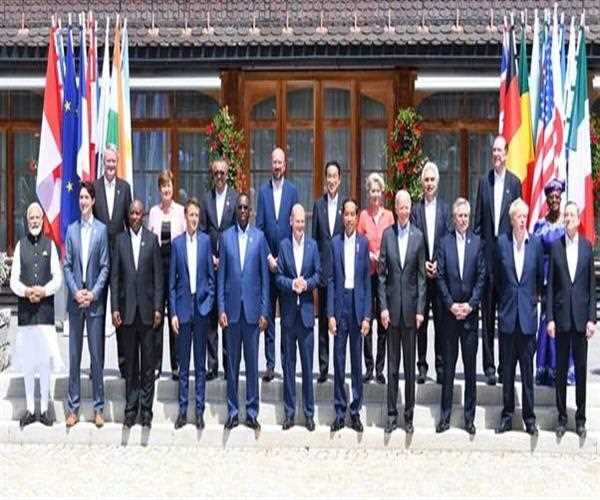
27-Jun-2022 , Updated on 6/27/2022 7:42:31 AM
G7 Summit Update
World powers gathered in Munich, Germany, for the 48th G7 summit, and on Sunday, the G7 leaders and EU representatives held a roundtable discussion. There were leaders from Canada, France, Germany, Italy, Japan, the United Kingdom, and the United States, as well as European Union delegates.
Narendra Modi, India's Prime Minister, was also invited, as were leaders from Indonesia, South Africa, Senegal, and Argentina.
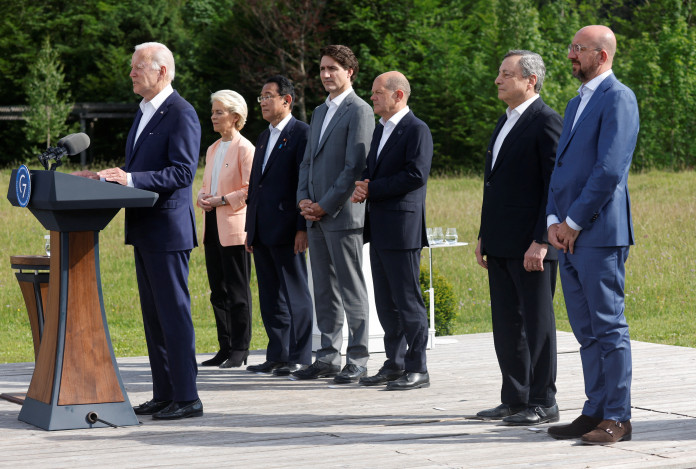
Climate change, energy, and other issues important to growing democratic countries like food security, health, counter-terrorism, gender equality, and democracy have been debated.
Unlike most high-stakes summits, the Ukraine-Russia war continued to dominate talks here. Only hours after the event started, Russian missiles attacked the Ukrainian capital of Kyiv for the first time in weeks.
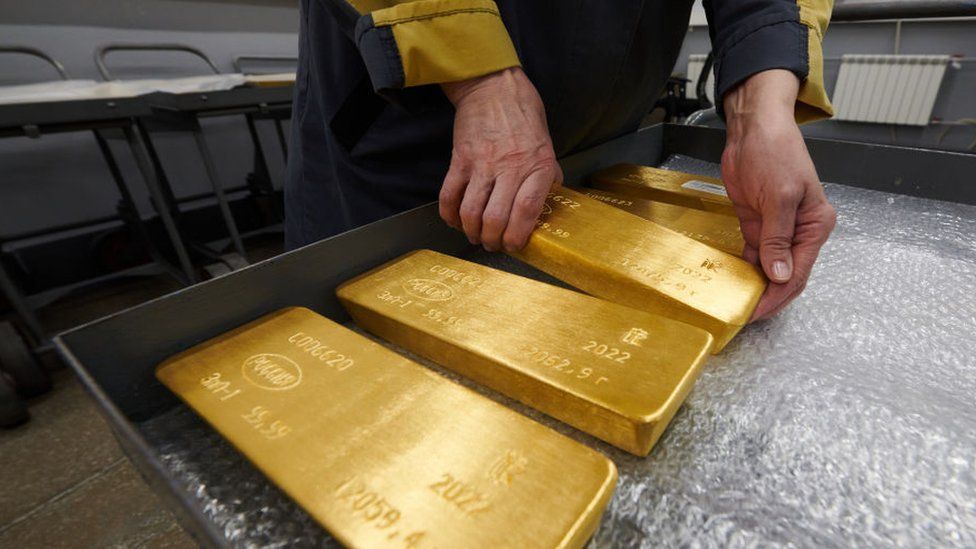
In a new concerted action to cut off Moscow's financial lifeline ahead of the meeting, world powers agreed to ban gold imports from Russia.
The western powers gathered at the Ammar castle in the Bavarian Alps before they continued on to Madrid for talks with NATO partners.
Support for Ukraine
Now the G7 will seek to close ranks in their backing of Ukraine and the war while grappling with intensifying global fallout, from soaring inflation to a looming food crisis and energy shortage. Russia's invasion of Ukraine, now in its fifth month, has put the world in a series of crises.
On a five-day trip to Europe, U.S. President Joe Biden held a bilateral meeting with German Chancellor Olaf Scholz. The two leaders vowed to stay united against the Russian invasion of Ukraine.

We know that the Ukrainian President, Zelenskyy, virtually addressed the G7 summit as well, and one of their crucial focuses will be on getting more weapons when it comes to the ongoing Russian invasion of Ukraine. That is something dominating the entire summit. We know that on June 26, when the leaders met, that was the top priority. Indeed, the German Chancellor spoke of the need for a united front against Russian aggression.
Now the G7 will be keen to show a brave face amidst the Russian actions in Ukraine, but they really need to come up with practical ways of first chopping the war and secondly dealing with the food shortages.
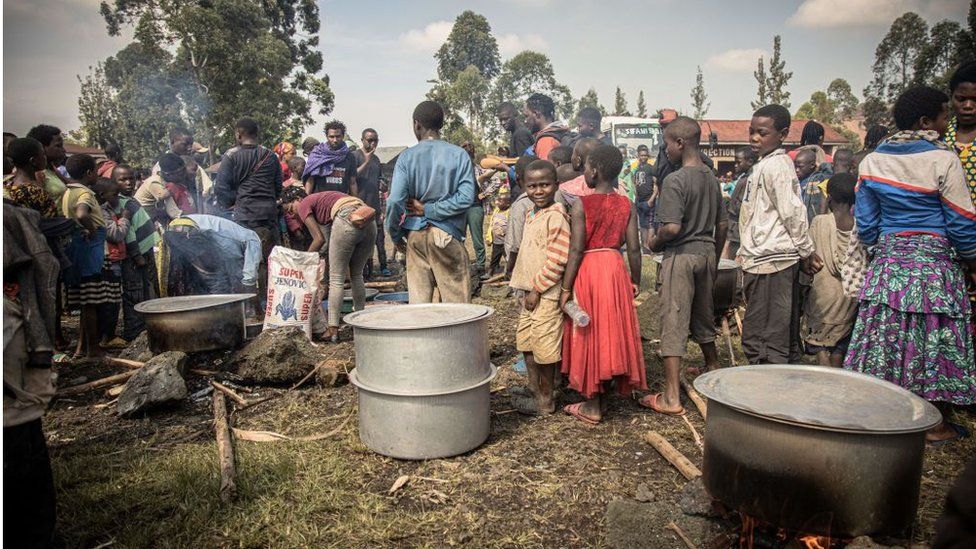
Remember, one of the key focus areas has been dealing with food shortages and hyperinflation.
When the joint statement is released on June 28, the finer details will be given. Still, the G7 is hopeful that the fact that they have invited the five countries from the global South will add to their weightage regarding the words coming from Germany.
Also, remember that a statement is being planned that is still under discussion between G7 and the five invitees on resilient democracy so that essentially could be something that Moscow will be keenly noting.
Focus on China
China's increasing economic might, combined with its more hardline diplomacy, has earned it no friends. Vice President Joe Biden of the United States announced the 'Partnership for Global Infrastructure,' in which the EU and the United States would invest $634 billion to boost countries' infrastructure.
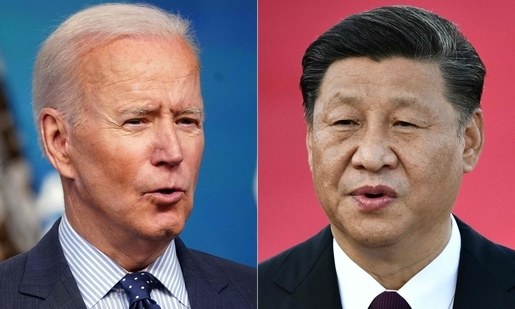
While it is not explicitly stated, the initiative is unmistakably one way for the West to fight China's Belt and Road Initiative.
Climate Variations
Climate change is becoming a recurring issue of discussion at the summit. The leaders are due to discuss climate change and energy with the visiting countries, while activists in Bavaria push for global action in the face of an imminent climate crisis.
Aside from the global infrastructure plan, the organisation is in negotiations with India, Indonesia, Vietnam, and Senegal to offer energy transition support via Just Energy Transition Partnerships, which are now being implemented in South Africa.
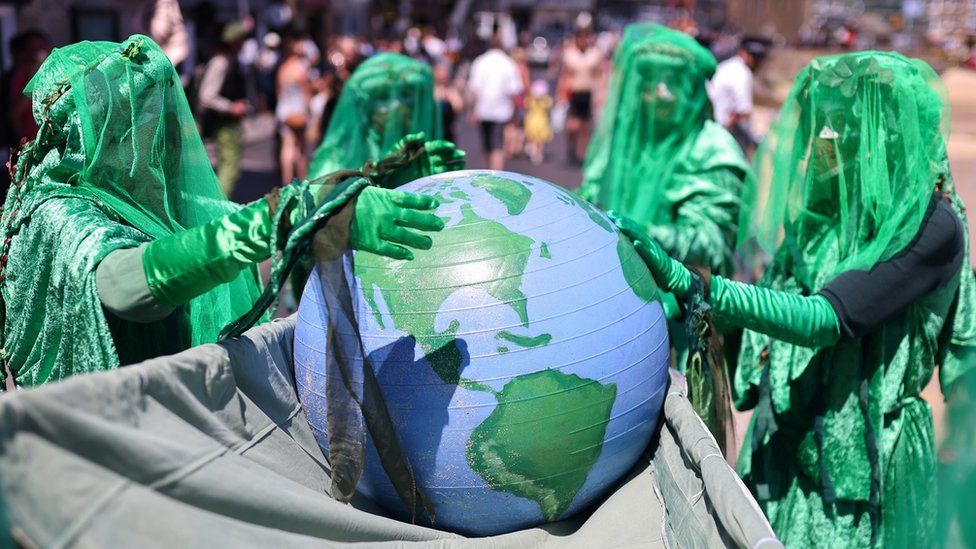
However, at a time when energy prices are rising, the government will find it difficult to convince other nations to abandon their coal furnaces and gas pipelines.
Of course, the G7 would prefer that these nations, who are seen as heavyweights, contribute to the weight of the G7 at a time when the G7 has been viewed as a collection of restricted countries, dominated by the West.
The Indian prime minister will be addressing two key sessions focusing on climate change, health, and gender inequality. He will be talking about the initiatives India has taken, whether the international solar alliance or a renewable energy front.

So that remains the primary focus, but the fact that India has been regularly invited—this is the third time Indian prime minister Narendra Modi has been present at the G7 summit—shows that it has now become essential to invite India to the G7 summit.
Next year, Japan will be hosting the G7 meeting in Hiroshima, and it's a given that Tokyo will extend an invite to India given the close relationship and special relationship both countries share.
Also Read: Nato Chief Warns Russia-Ukraine War Could Last For Years

Student
Hello, I am a mechanical engineering student from Delhi Technological University. I've written articles, journals, and social media postings for "Panache"—The Fashion Society of DTU, MindStick Software Private Limited, Zayuche LLP, and OtakuKart. I learned more about the subject through researching it, which has aided my growth.
Comments
Join Our Newsletter
Subscribe to our newsletter to receive emails about new views posts, releases and updates.
Copyright 2010 - 2026 MindStick Software Pvt. Ltd. All Rights Reserved Privacy Policy | Terms & Conditions | Cookie Policy